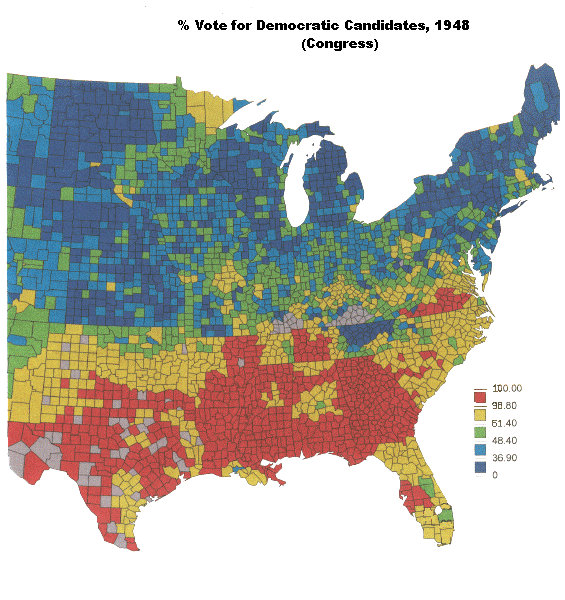The other side of the coin of black disenfranchisement in the South was one-party rule. As this map of returns in the 1948 Congressional elections shows, almost all counties in the Deep South delivered 98% or more votes to the Democrats. Matters were soon to change. Democratic President Truman was the first president since Grant to take up the cause of blacks when he desegregated the armed forces. The emergence of advocates of black civil rights in the national Democratic party was to set the stage for an historic realignment of party affiliations in the South. At the Presidential level, rebellious "Dixiecrats"--Southern Democrats opposed to the mild civil rights platform of the national Democratic party, ran Strom Thurmond for President, winning 39 electoral votes (S.C., Miss., Ala., La.). This was the first indication that white Southern Democrats were willing to abandon their party over racial issues--although not yet that they were willing to join the Republican party.
